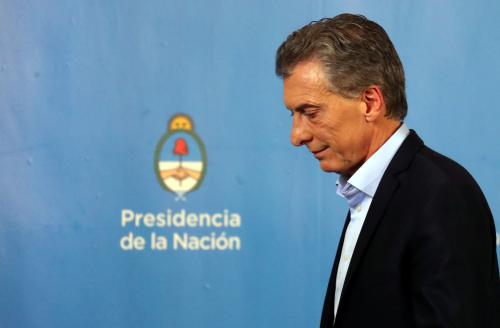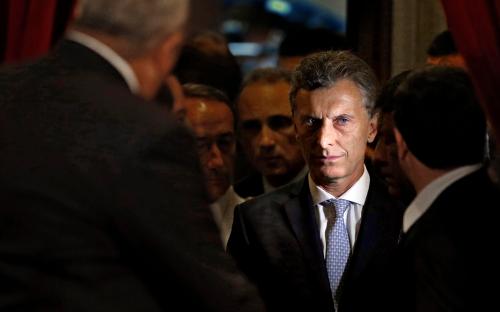The outcome of this Friday’s Euro Summit and the EU Summit later this month will decide whether the calm of global financial markets witnessed over the past few weeks is real or only apparent. In one of the first summits since the 1999 introduction of the common currency, euro-area leaders will consider the proposals of the recent plan signed by EU Commission President Barroso and European Council President Van Rompuy.
Compared to the previous plan jointly presented by the French and the Germans last February, the new proposal foresees a relaxing of some criteria such as the previously-envisaged removal of wage-indexation mechanisms. It also allows for a more central role of the EU Commission, as opposed to the intergovernmental feature that drove the earlier French-German plan.
Both the Barroso-Van Rompuy proposal and the Merkel-Sarkozy proposal recognize—albeit with more than a year’s delay—the vital need to develop a structural and long-term response to the uncertainties surrounding the ability of some European economies to sustain their respective (increasing) public debt.
The outcome of the upcoming summits will determine the willingness of the Germans, in the short term, to strengthen the financial stability mechanism, by increasing its financial capacity. Given the constraints of its current configuration, the mechanism imposes an implicit burden on the European Central Bank (ECB). This burden is one that has not been foreseen in the ECB’s own mandate. So far, the ECB has been filling the institutional vacuum generated by the lack of a crisis management framework in Europe by providing large support to distressed European economies. If protracted over time, this will compromise the ECB’s own ability to control monetary aggregates and the stability of prices in the euro area.
Regardless of the outcome of the two upcoming European summits, a fundamental imbalance of the euro architecture will remain intact and will perhaps even be strengthened. Because there is no mechanism to steer a symmetric adjustment of current account balances within the euro area, Germany is in a position to secure for its economy consistent surpluses, greater even than those of China in proportion to GDP, without the limitations of a compensatory mechanism working through currency appreciation.
Thanks to this imbalance, Germany has amplified the benefits for its economy following the introduction of the common currency. Never has this asymmetry been clearer than at the height of the euro crisis witnessed last year. The German economy benefitted from a hidden export subsidy as a result of a weaker euro.
As a result, the current fiscal consolidation in Europe will produce asymmetric effects. Germany is already compensating for the sustained decline in demand from its traditional commercial partners in the peripheral euro area by increasing its presence in emerging economies outside of Europe, while benefiting from the lack of a compensatory mechanism working through currency appreciation.
On the other hand, it is difficult for peripheral countries of the euro area to compensate for the reduction in internal demand with an increase in external demand: the capacity of these economies to penetrate emerging markets is much more limited. Their exports tend to be more similar in terms of technological content, which is relatively low, and the euro exchange rate, which is more onerous for these countries thanks to the Northern economies of the monetary union, represents an additional hardship. In this scenario, the refusal of the German economy to act as driver for the economic recovery of a crisis-struck Europe is especially problematic.
Looking forward, the euro area as a whole, including its “peripheral” economies, should ask: “what role will it play for itself and for the global economy in the years to come?” Will the euro area be a deflationary force or a supporting driver for global economic growth? This is a not-too-veiled concern that was presumably discussed by U.S. Treasury Secretary Timothy Geithner during his visit to Berlin earlier this week.



Commentary
What is Next for the Eurozone? Taking Stock of the Euro and EU Summits
March 9, 2011